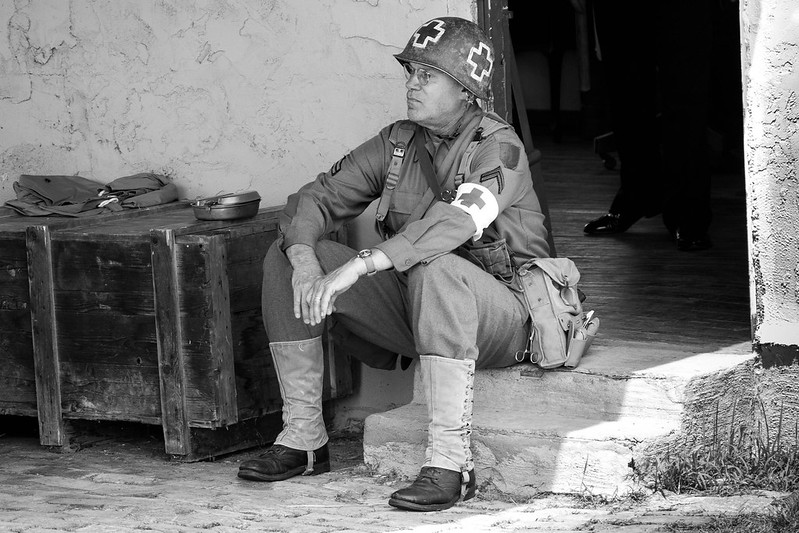SpartanForce
Member
My Honor Was Loyalty | Second Official Trailer
https://www.youtube.com/watch?v=KGFJYJHxYxc
German point of view.
https://www.youtube.com/watch?v=KGFJYJHxYxc
German point of view.
This seems like the right thread to ask this.
I have to make a presentation at school about the confilicts between Japan and China ( and other asian countries) and their consequences today.
Any usefull links to this subject? ( I would usually not ask for something like this, but my school library has unfortunatly no books about this subject)
What do you mean?Are you involved with any WWII reenactment/living historical associations?
What do you mean?
EDIT: I think you meant if I am a neo-nazi? So no, I'm not. I'm an historian.
Started watching The World At War a few nights ago, up to episode 7. Amazing documentary, although I'm not too keen on the Blu-ray edition being zoomed in to 16:9 =\
What do you mean?
EDIT: I think you meant if I am a neo-nazi? So no, I'm not. I'm an historian.






This seems like the right thread to ask this.
I have to make a presentation at school about the confilicts between Japan and China ( and other asian countries) and their consequences today.
Any usefull links to this subject? ( I would usually not ask for something like this, but my school library has unfortunatly no books about this subject)
Anyone got some more good sources to check out about this facet of the war?
Giving this thread a bit of a bump. I'm in the middle of re-watching The World at War documentary series and fuck me if this still isn't the best documentary I've ever seen, period. It's crazy just how comprehensive it is. I have to say one of my favorite things about it are all of the interviews they have to accompany the footage. Because this was made less 30 years after the war had ended, they were able to interview people who worked alongside the likes of Churchill, Roosevelt, Stalin, Hitler, etc. That kind of first-hand knowledge/perspective of the war is now long-gone, so it's great that it's preserved here.
Are you sure its 4:3?
The Japanese we're preparing to surrender. The dropping of the bomb had more to do with influencing the USSR than anything else.From what little I know the atomic bombing saved a ton of Allied lives by avoiding a costly invasion of the Japanese Home Islands. So it was the right thing to do in my opinion.
Great idea for a thread, subscribed.
Yeah, apparently this is a new version that got released last year.
Description says "Aspect Ratio: 4:3 - 1.33:1";
https://www.youtube.com/watch?v=SC-ADHH_r80
The Japanese we're preparing to surrender. The dropping of the bomb had more to do with influencing the USSR than anything else.
The Japanese we're preparing to surrender. The dropping of the bomb had more to do with influencing the USSR than anything else.
